Who is Yoon Suk Yeol, the South Korean president who declared martial law?
President has thrown his country into political turmoil by briefly declaring martial law
Your support helps us to tell the story
From reproductive rights to climate change to Big Tech, The Independent is on the ground when the story is developing. Whether it's investigating the financials of Elon Musk's pro-Trump PAC or producing our latest documentary, 'The A Word', which shines a light on the American women fighting for reproductive rights, we know how important it is to parse out the facts from the messaging.
At such a critical moment in US history, we need reporters on the ground. Your donation allows us to keep sending journalists to speak to both sides of the story.
The Independent is trusted by Americans across the entire political spectrum. And unlike many other quality news outlets, we choose not to lock Americans out of our reporting and analysis with paywalls. We believe quality journalism should be available to everyone, paid for by those who can afford it.
Your support makes all the difference.South Korea is in turmoil after president Yoon Suk Yeol declared martial law on Tuesday night, only to revoke it hours later under immense pressure.
The decree, which marked the first attempt to impose such measures in over four decades, has sparked calls for his resignation and left the nation’s political landscape in disarray.
On Wednesday, opposition lawmakers filed a formal motion to impeach the president. It could be voted on as soon as Friday, said lawmaker Kim Yong-min.
An embattled leader
Mr Yoon, who narrowly won the presidency in 2022, has been facing mounting unpopularity since taking office. Already weakened by a crushing parliamentary election defeat for his party earlier this year, his approval ratings had plummeted to 17 per cent before this week’s events.
The chaos on Tuesday night began when Mr Yoon justified his martial law declaration citing threats from North Korea and the need to eliminate “anti-state elements”.
But the move was widely interpreted as an attempt to consolidate power in the face of his domestic struggles. Within hours, lawmakers, some from his own People Power Party, rushed to the National Assembly to block the order, while thousands of protesters took to the streets in Seoul.
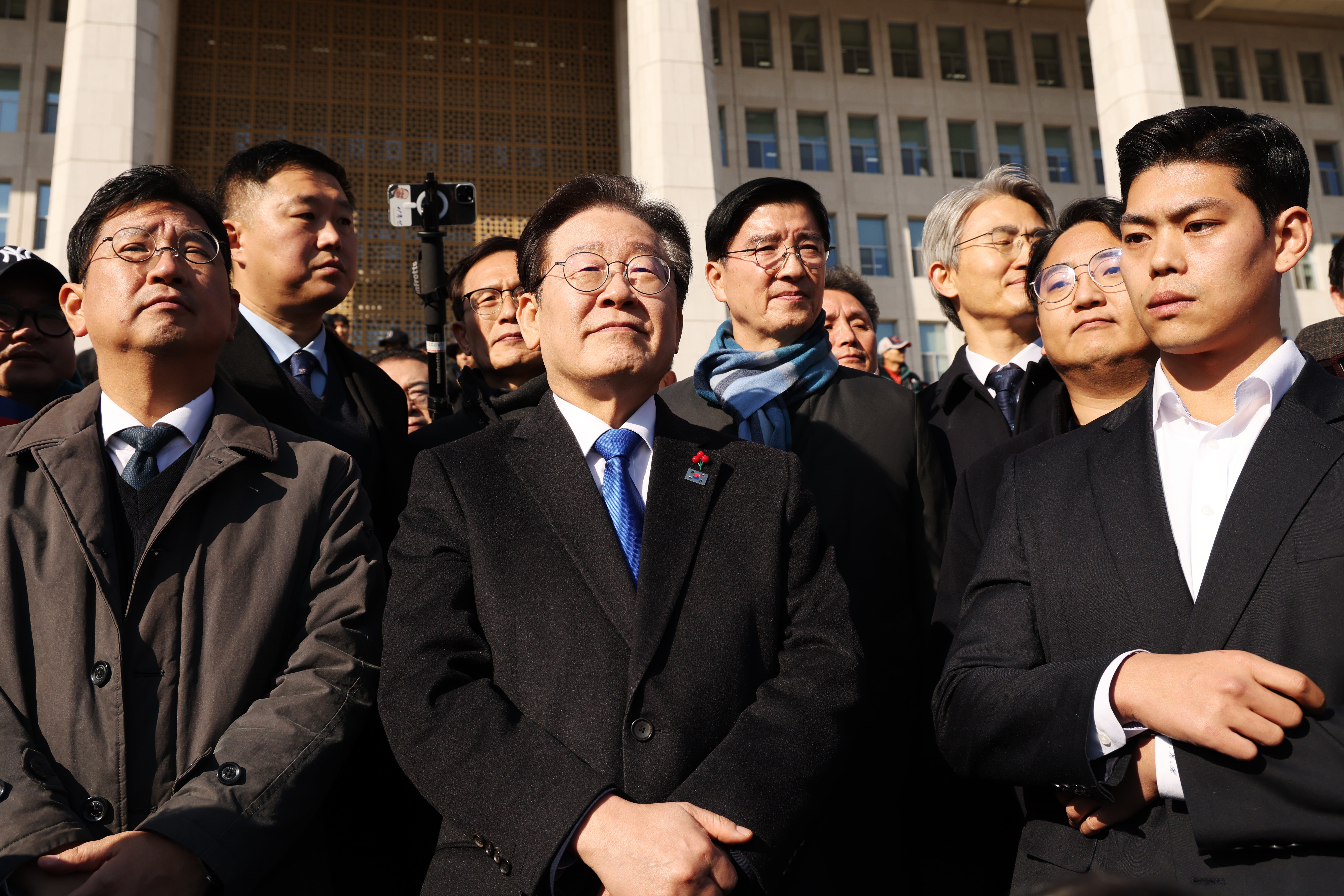
By the time Mr Yoon withdrew the decree, the protesters outside the National Assembly were cheering, but the damage to his presidency appeared irreversible.
Mr Yoon’s declaration of martial law was a “legal overreach and a political miscalculation”, Prof Leif-Eric Easley of Ewha Womans University in Seoul told BBC News.
“He sounded like a politician under siege, making a desperate move against mounting scandals, institutional obstruction, and calls for impeachment.”
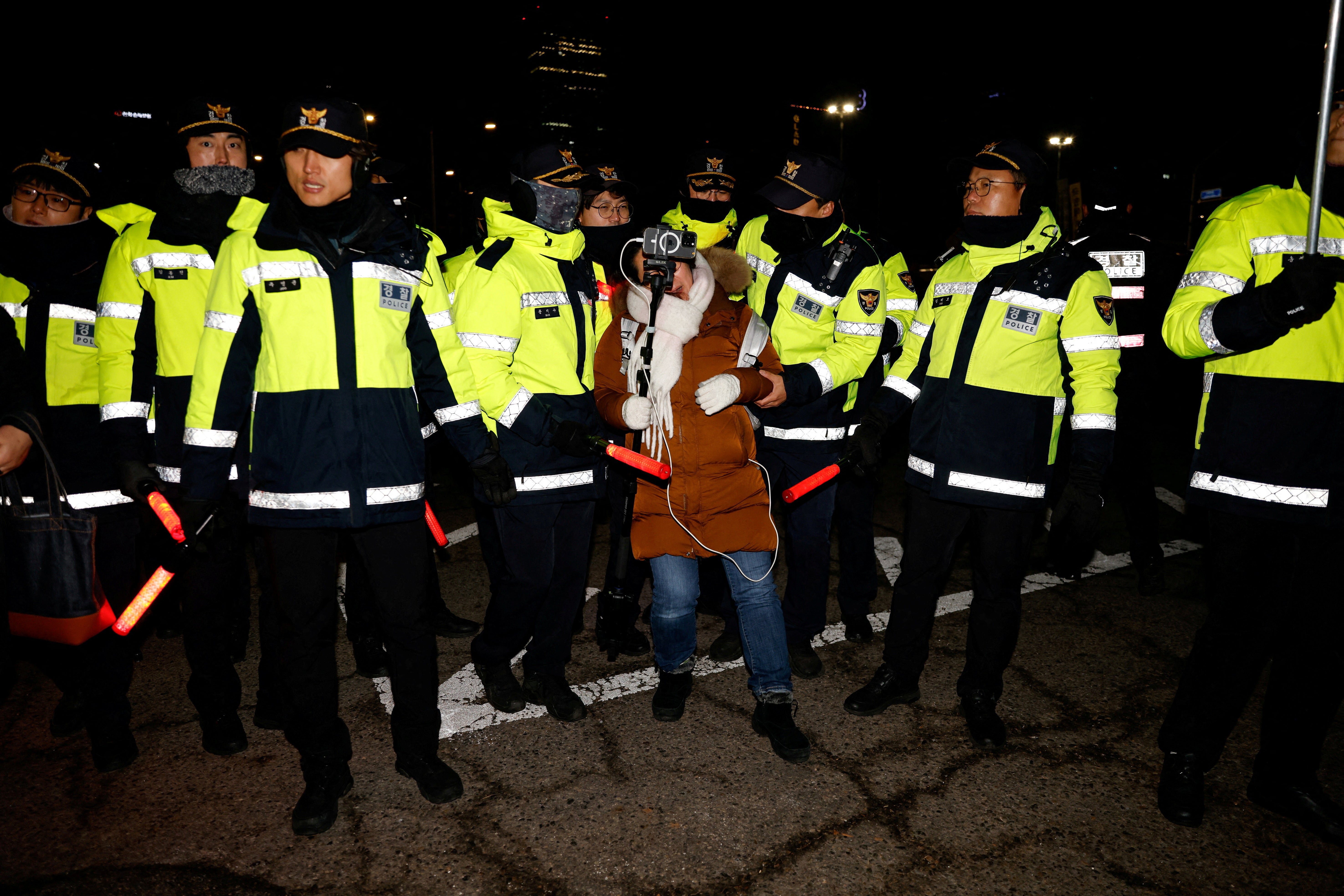
A presidency marred by controversy
Mr Yoon’s presidency has been turbulent from the start. Mr Yoon was a prosecutor before entering politics and gained national prominence for spearheading the corruption case against former president Park Geun-hye. His lack of political experience was evident after he narrowly defeated liberal candidate Lee Jae-myung in 2022.
While Mr Yoon’s campaign resonated with younger male voters due to its anti-feminism rhetoric, public hopes for “principle, transparency, and efficiency” under his leadership were soon dashed, Prof Don S Lee from Sungkyunkwan University told the British broadcaster.
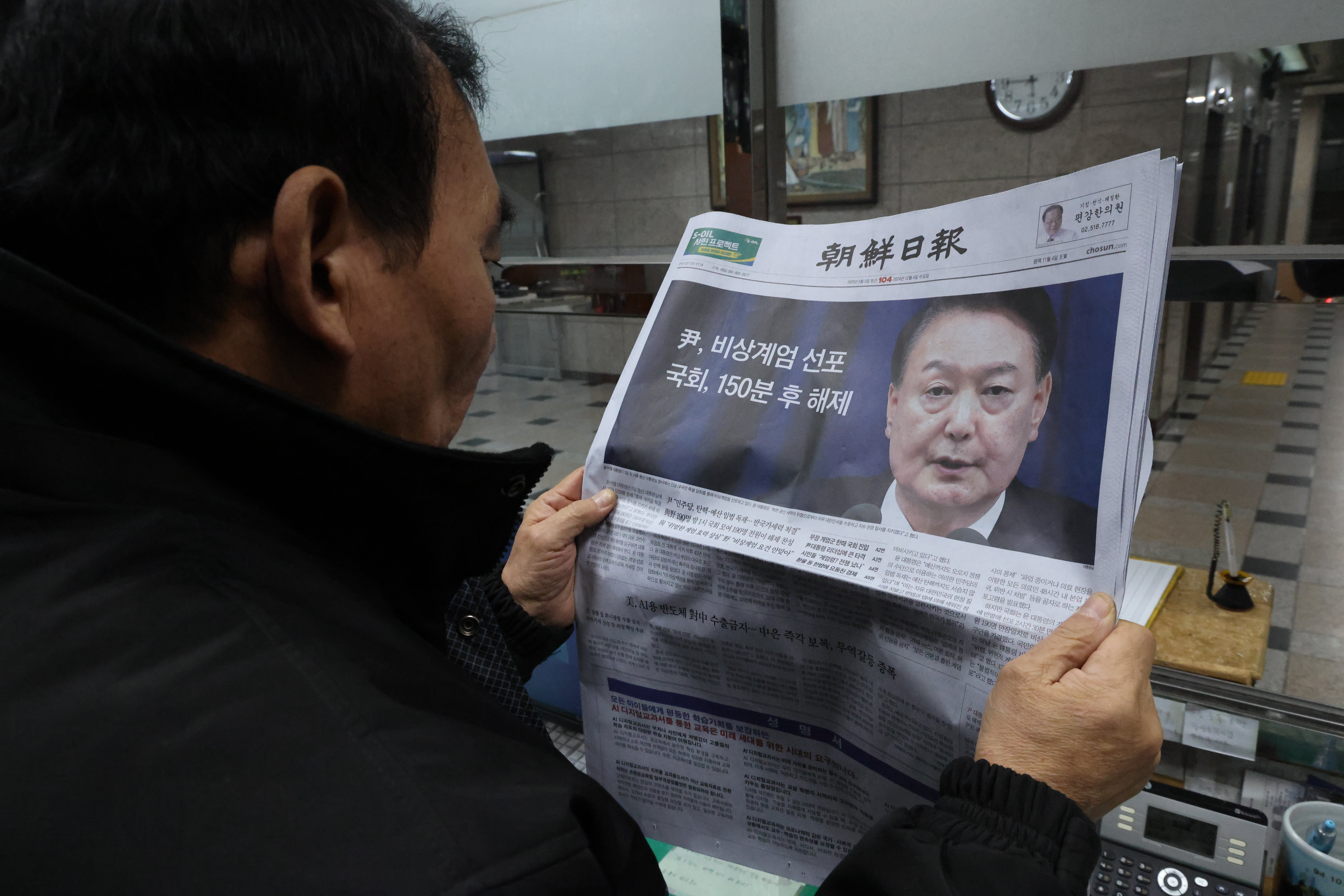
Mr Yoon’s tenure has been plagued by scandals, many centring on his wife, Kim Keon Hee, who has faced allegations of accepting a luxury Dior handbag and stock manipulation. In November, Mr Yoon apologised for her actions but rejected demands for a formal investigation.
Meanwhile, his frequent gaffes – he was caught on a hot mic apparently insulting US lawmakers and praising former dictator Chun Doo-hwan – further eroded his credibility.
Chun led tanks and troops into Seoul in December 1979 in the country’s second coup after dictator Park Chung-hee’s death. The next year, he orchestrated a military crackdown on a pro-democracy uprising in the southern city of Gwangju, killing at least 200 people.
However, Mr Yoon praised him for being “good at politics”.
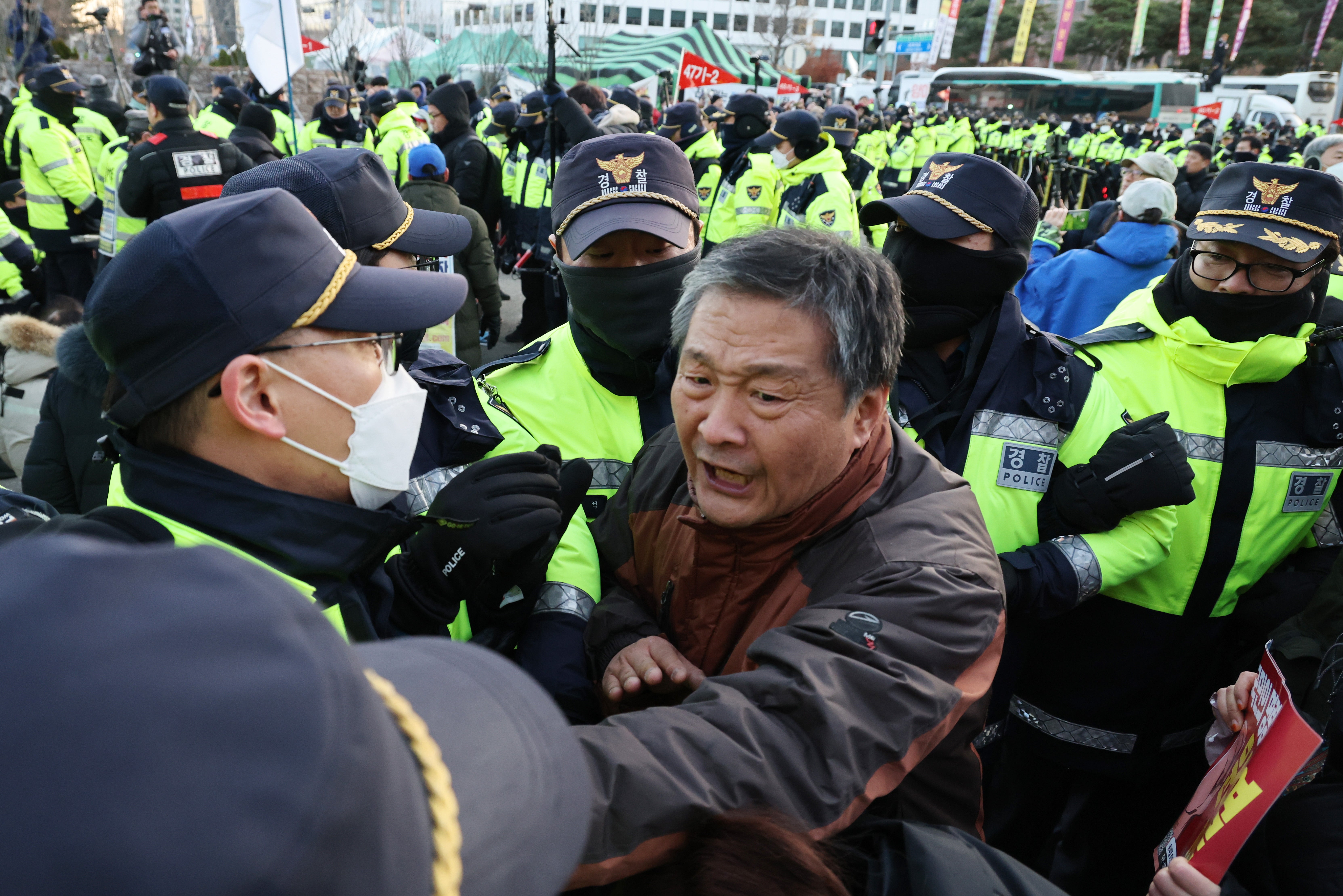
Strained relations at home and abroad
Domestically, Mr Yoon has struggled to navigate a parliament controlled by the opposition Democratic Party, which won a decisive majority in April’s election. Opposition lawmakers have repeatedly blocked his legislative agenda, forcing him to veto bills at an unprecedented rate. Last week, they slashed the government’s proposed budget, leaving Mr Yoon with little room for manoeuvre.
Amidst these political setbacks, Mr Yoon’s approval ratings have remained dismal, with growing calls for impeachment. Opposition leader Lee Jae-myung has called Tuesday’s martial law declaration a “decisive opportunity to break the vicious cycle and return to normal society”.
Internationally, Mr Yoon’s presidency has been a mixed bag. While he has strengthened ties with allies like the US and Japan and provided aid to Ukraine, his hardline stance on North Korea has escalated tensions with Pyongyang.
Critics also accuse him of jeopardising relations with China, South Korea’s largest trading partner.
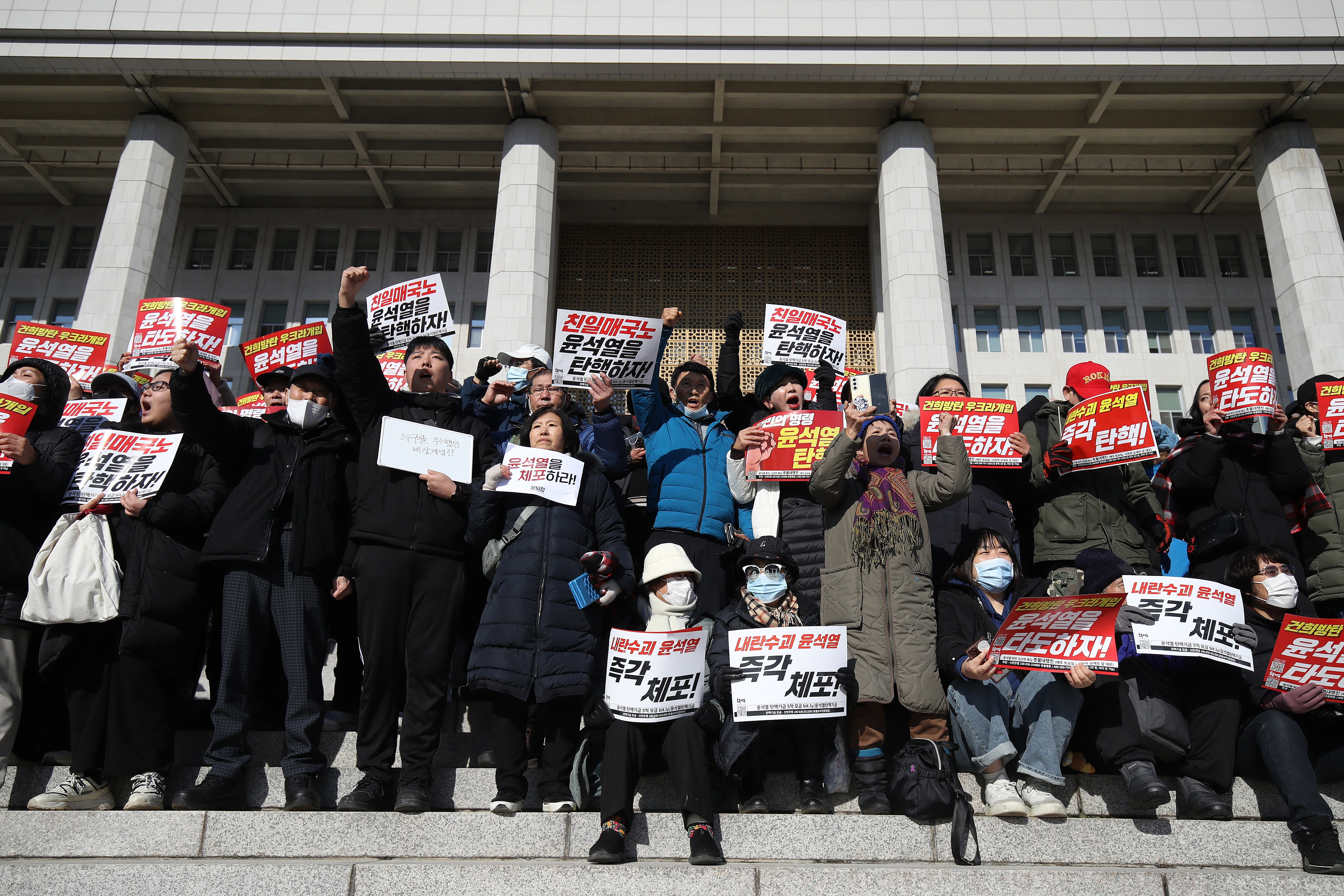
What’s next for Yoon Suk Yeol?
Mr Yoon’s latest political gamble has drawn widespread condemnation. His senior aides offered to resign en masse on Wednesday, while opposition lawmakers moved forward with impeachment proceedings. Even leaders within his own party have called for his removal.
Anger continues to swell across South Korea. Protesters have vowed to remain on the streets until Mr Yoon steps down, and one of the nation’s largest labour unions has announced plans for a strike.
Former foreign minister Kang Kyung-wha believes Mr Yoon has backed himself into a corner. “The ball is in the president’s court to find a way out of this corner that he has put himself in,” she said.

Join our commenting forum
Join thought-provoking conversations, follow other Independent readers and see their replies
Comments